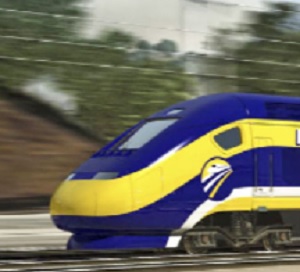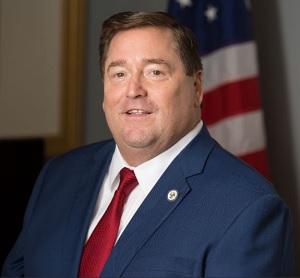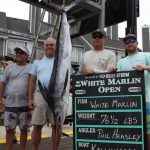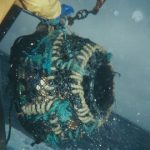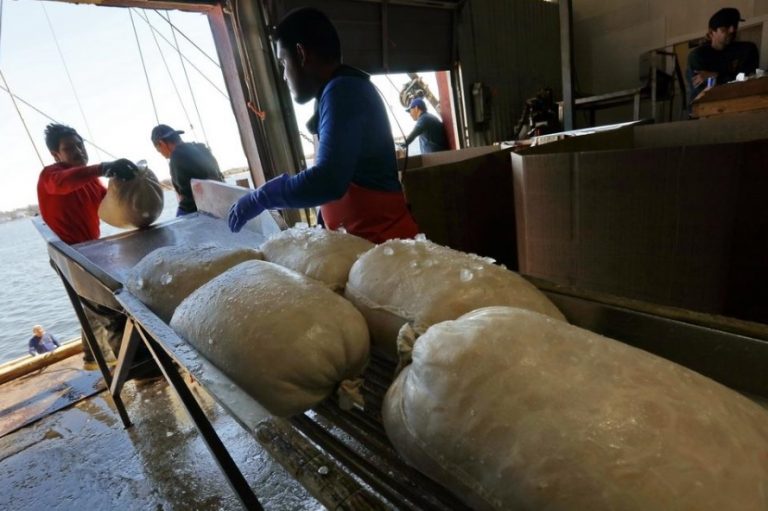Tag Archives: Opinion
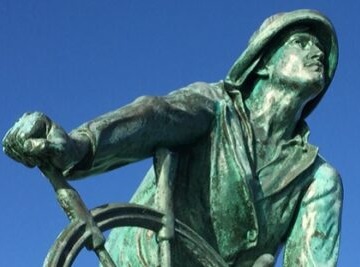
Trawl Task Force Wins But Fishing Methodology Between N.O.A.A. and Commercial Fishing Today Is Vastly Different
To Whom This May Concern: First I will talk about N.O.A.A.‘s methodology of fishing when their fishing survey was started to find the abundance of fish, but tows were randomly picked, tows were 20 minutes long, using a net which was too small for the boat and the area covered by the bouncing net and wire was minor compared to today’s commercial fishing tows. At that time, these surveys had No Quota Effects on Commercial Fishing. Times have changed since then, BUT NOW N.O.A.A. surveys control fish given to commercial fishing by their inadequate surveys methodology. >Click to read< by Sam Novello, a Gloucester fisherman who cares about the future of fish and fishermen. 23:30
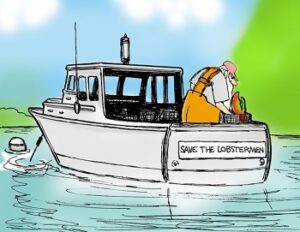
Opinion: Federal rules are sinking Maine’s lobster industry
As a lifelong Maine lobsterman, I understand the inherent dangers of my job. I keep watch on the forecast knowing that sudden weather changes can make the difference between a successful day at work and putting my crew’s life at risk. These days, however, the hazard posed by Mother Nature does not compare with the perfect storm of regulations coming out of Washington that threaten my job, our way of life and may eventually sink a fishery that has supported communities and generations of families here in Maine. By Kristan Porter >click to read< 15:18
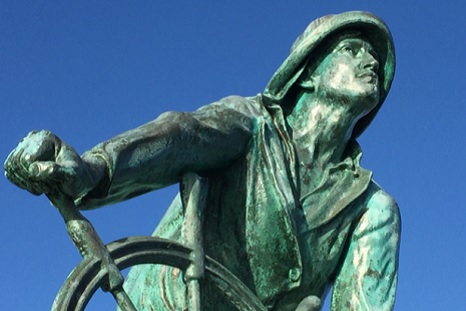
Another Stab in the Back
Reinstatement of excluding commercial fishing in Obama’s Northeast Canyons and Seamounts Marine National Monument by Joe Biden is another stab in our backs. It will hurt fishermen from Maine to Rhode Island. As if we don’t have enough problems with losing ground. Lobstermen and crab fishermen will also be excluded in 2023. A huge mistake has been made, based on the lack of evidence that fishermen have damaged reefs, corals, or hurt any whales. I fished those waters for twenty years, and never saw a piece of coral. The depth is 2.000 feet, but we’d set our nets at 600 feet, never touching bottom. This situation is not good, and will put more fishermen out of business. I don’t know what can be done to overturn this, but something needs to be done. Sam Parisi, Gloucester, Mass. 16:17
A Proclamation on Northeast Canyons and Seamounts Marine National Monument. >click to read<

Offshore wind won’t fish – There is no compatible mixing of wind turbines and fishing!
The endangered species of the Maine fishing family is already dancing around the newly announced National Oceanic and Atmospheric Administration (NOAA) restrictions to protect the right whales from gear entanglement. Add several 10,000-ton floating wind turbines, and even more whale restrictions on the NOAA docket (98 percent gear reduction in 10 years), and you have a severely impacted Maine fishing industry.,, I fear NOAA is more a friend to the Green New Deal than to our fishermen, or even our whales. By Rep. Sherman H. Hutchins, >click to read< 14:21

Mismanaged Since 1949! – A primer on fishing failures
Both the federal and municipal elections heighten our interest in whether or not fishery issues will, at last, be tackled in this province. Perhaps those running for elected positions need a primer on how our fishery was decimated over the past 70 years since Canada took over management of this resource following Newfoundland and Labrador’s Confederation entry in 1949. Hopefully, it will counter the current PR that is being disseminated by DFO, which wants Canadians to believe that it is not the department that has failed our province and our communities, but that the destruction has come from climate change, changes in water temperatures and other uncontrollable factors accounting for the demise of our once great fishery resource. There are still many, including myself, who have worked in the industry all these decades and witnessed first-hand and know full well that DFO has mismanaged our fishery since 1949. >click to read<, By Gus Etchegary, St. John’s 13:30
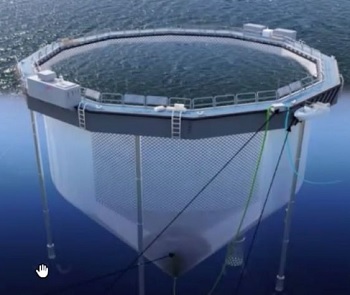
If the Frenchman Bay salmon farm isn’t right for Norway, it’s not right for Maine
About that American Aquafarms proposal: NIMBY- not in my backyard. In this case it applies to the developer, not the opponents. Whenever I describe to people the location of this industrial development in Frenchman Bay, their first reaction is always the same: What were they thinking? How could they possibly do this? The short answer is, the developers came here to do what they couldn’t do back home in Norway. They couldn’t build this project in their own backyard, so they are trying to put it in our front yard,, We’re better than this, and it’s time we stand up for all that is special about the Maine coast and say no. Not here. Not now. Not ever. >click to read< By Jerry Potter 10:55

Lobstermen are opposed to this. Stopping American Aquafarms is your fight, too
The project will include 30 in-water fish pens, 150 feet in diameter; dozens of generators to power pumps and lights day and night; barges for feed and waste, and vessels ranging in size from 50 to 150 feet to process the fish and haul fish waste, fish food and thousands of gallons of diesel fuel. The threat to the bay’s waters and ecosystem from water pollution, fish escapes and disease is alarmingly real. Lobstermen who have fished these waters for generations also are opposed to this project. All 26 lobstermen who fish out of Bar Harbor presented a statement of opposition to the Town Council recently, and fishermen from around the bay are following suit. By Dennis Damon, >click to read< 11:19

100s of offshore wind farm turbines greenlighted for New Jersey coast – Groucho Marx is all in!
Two wind farm projects were approved, and would provide enough power for 1.1 million homes,,, sure they will! The two projects are a 110-turbine wind farm by Atlantic Shores, which is owned by European power companies Shell New Energies US and EDF Renewables North America, and a 82-turbine farm by Ørsted called Ocean Wind 2. Atlantic Shores’ farm will be located about 10.5 miles off the coast of shore towns north of Atlantic City. Ørsted’s Ocean Wind 2 will be nearly 14 miles off Cape May. >click to read< – If Wind Farm Is Constructed You May Soon Forget It Is There – I’m going to have to buy Groucho Marx glasses, complete with a large nose, mustache and huge eyebrows, to dare show my face on LBI after writing this column. But stupid or brave, here I go. I support the Atlantic Shores Offshore Wind proposal,,, Better wind than fossil fuels or nuclear. Natural gas pipelines can blow up; as for nuclear, I have only six words – Three Mile Island, Chernobyl and Fukushima. Do you remember when the Ocean County Health Department used to distribute potassium iodide pills in case of an incident at the Oyster Creek Nuclear Generating Station? Stupidity abounds. >click to read< Bill Gates says you’re all wrong! Game Changer: Bill Gates Backs Safe & Reliable Next Generation Nuclear Power Plants – >click to read<

Leave Our Ocean Alone – Pursue Energy Technologies on Land
Onshore alternatives exist that can make use of existing infrastructure and not impact our ocean resources. I urge readers to look into these alternatives. While moving the turbines farther offshore will reduce visibility impacts, it does not resolve the issues associated with industrializing the ocean’s resources. There will be environmental issues to be considered. The Atlantic Shores project proposed off Long Beach Island could include some 200 massive wind turbines, standing 850 feet above sea level and only 9 to 10 miles off our beach, presenting a “wall” of turbines obstructing our view to the horizon. The impact on the environment, including that on the endangered right whale,,, >click to read< by Jim Binder 08:22
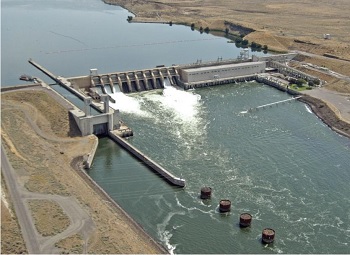
Plan to removal Snake River dams should be supported
As a commercial fisherman, I have never felt more abandoned or frustrated by the elected officials I voted into office. The governor and senator say that they care about local jobs. They would do well to remember this: Washington’s fleet of coastal commercial salmon fishermen has gone from 3,041 in 1978 to 102 people fishing in 2018. >click to read< By Tele Aadsen

Jaime Battiste: Balancing conservation and fairness in a ‘moderate livelihood’ for Indigenous fishermen
What is fair to the Mi’kmaq, who have been deprived of their legal right to a practice passed down for generations? What is fair to the commercial fishermen, many of whom today are of Mi’kmaq descent, who depend on the fishery and healthy stocks for their own livelihoods? There is no easy answer. The report addresses two misconceptions that have added fuel to this fire.,,, As someone who is fluent in the Mi’kmaw language, the Mi’kmaw language has no way to describe “an individual unfettered right, to accumulate wealth.” In fact, the closest would be a pejorative term that’s closer to greed. Much like the how the government’s right to regulate has limits, the right to a moderate livelihood also has its limits and responsibilities. >click to read< 09:42
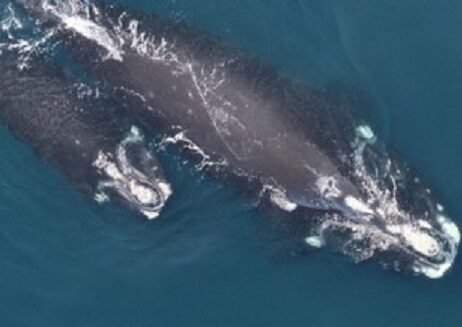
A “Must Read” for Media and Politicians – Seeing the bigger picture on right whales
Someone should point out to the media that the right whale population has shown dramatic growth from the 1990s up until the last few years, when birth rates leveled off. Without a doubt, 2017 to 2019 was a terrible time period for them,,, It is irresponsible for any scientist or oceanographer to take an extreme year (2017) and say that the population is headed to extinction. The bigger picture shows a much more hopeful story. By Jack Merrill, >click to read< 10:27
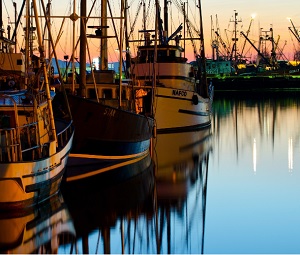
It’s Time for Politics to Take Fishing Seriously: the Neglect of Fisheries in (International) Politics
For a few years now, I’ve worked in seafood restaurants to pay for tuition. Sometimes I was amazed by the kinds of stories I’d hear about the fishing industry.,, I have to confess that I’d never really given a whole lot of thought to the fishing industry as a whole and to some extent, working as a lobster fisherman, I was even looked down upon by some people I’d known growing up. I began to care more once I actually had a job which dealt with the retail end of fishing, given that I was cooking and preparing lobster on a daily basis. After moving to St. John’s I learned from former high school friends who ended up working on boats sent around the North Atlantic. By Jacob Laybolt >click to read< 13:47
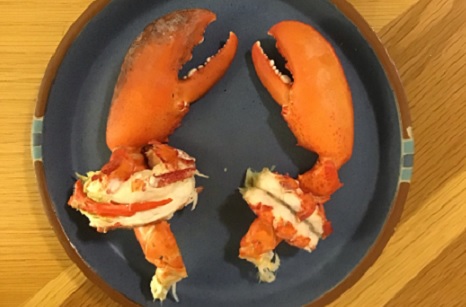
Opinion: The Reason for No Season – Jim O’Connell
These are 2 females. The black shelled female on the left did not shed this year for the first time skipping the yearly shed. It now has eggs. It was a pound and a half and does not have to shed every year anymore.,,, Canada is not protecting the reproductive potential with it’s seasonal rules. They force the lobstermen to throw the baby out with the bath water. Lobstermen who are trying to make a living for the whole year in two months are targeted on the most important lobster for reproduction.,,, The First Nations have publicly come out and said they want to improve the regulations on the present method for sustainability. Jim O’Connell, >click to read< 15:36
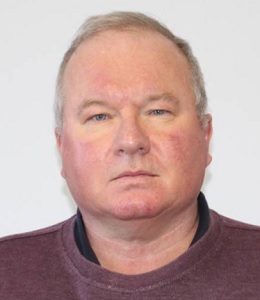
Systemic racism: another view
A recent column by Dr. Jim Guy on the lobster fishery question (“Systemic racism plagues Nova Scotia’s fishery,”) is most thought provoking. Dr. Guy posits that at the core of this dispute lies systemic racism, luridly comparing the situation to the segregationist Jim Crow south of America’s past. I do not agree with his position, instead seeing the dispute as one between fishers contesting jurisdictional licensing and conservation issues and not one of race, much less one of systemic racism, where the very administrative arms of society are imposing racially biased polices against Indigenous fishers. By David Delaney, >click to read< 12:35

Opinion: Been a lot about the Observer Program out there lately. My question is, why are they needed?!!
When our boats come to unload their catch, NOAA people are there to report their landings, and if they caught too much haddock, cod or flounder, or other species that are not allowed, the owner could face a fine. Of course, Electronic monitoring is an alternative to that. This would show what they caught each and every tow, thus not needing an observer that many can’t afford, and second it should be a NOAA financial obligation, not placed on our fishermen. There are so few of them left. There is a lot to think about, but the bottom line is, it should be a financial obligation of the government to harvest the government required data. Thank You, Sam Parisi, Gloucester 19:15
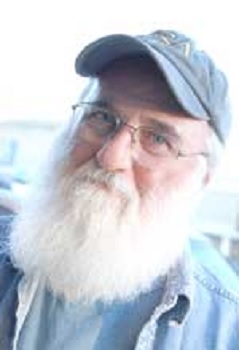
Politics & Other Mistakes: Lobster lovers versus blubber lovers
In Maine, hardly any restaurants serve whale. For good reasons. Whales are endangered, so any chef who offers the giant mammals as the fresh catch of the day is guaranteed to incite protests, vandalism and the sort of caustic online reaction usually reserved for racist remarks from the president. Also, I have it on good authority that whale meat is very gamey. At best, it’s an acquired taste. On the other hand, right whales weigh as much as 70 tons, which means just one could supply the average sushi bar with the makings of enough gunkan maki for every hipster in Maine.,,, But the real villain isn’t Herman Melville. According to prominent environmental groups, it’s the lobster. by Al Diamon >Click to read< 12:16
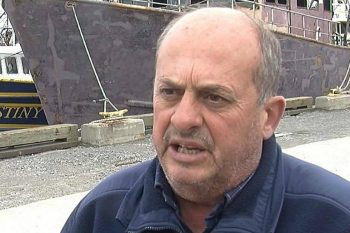
What About Carlos Rafael, His Permits and His Boats? [OPINION]
There has been little public talk about “The Codfather” and his fishing empire since he was sentenced to federal prison for crimes related to fishing. In September of 2017, Judge William Young sentenced Carlos “The Codfather” Rafael to 46 months in federal prison. Additionally, Judge Young fined him $200,000 and three years supervised probation after his release from prison.,,, hearing rumors that two big players have emerged as the buyers of the boats and the all-important federal permits. One buyer wants the groundfish operation and one wants the scallop operation. There is concern locally that “Wall Street money” is coming in to buy up the local operations. >click to read<08:21
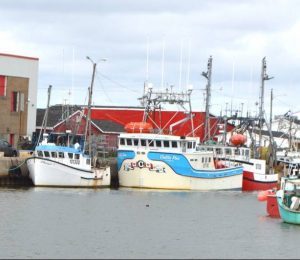
Opinion – Modernizing the Fisheries Act long overdue
Here we are in 2019 waiting for the passing of Bill C-68, a bill to amend the Fisheries Act. Wow! The oldest piece of legislation since confederation is being modernized, thus advancing social economics, Indigenous rights and protecting the environment where fish live and reside. This is a tremendous piece of work and although some (in the mining and farming industries) do not support the bill, it needs to proceed. >click to read<11:33
DFO needs to make science a priority in decision making, geography prof says
 Following the recent protests at DFO, a geography professor at Memorial University is speaking out. Rodolphe Devillers, who specializes in marine conservation, says the Department of Fisheries and Oceans needs to make science more important in decision making. “I’m very sympathetic for fishers. I understand that they’re angry and they have to talk and DFO has to listen to them,” he said. “What I’m less sympathetic with is the organizations that are around the fisheries that are very strong at lobbying and that can pressure DFO to actually modify and increase the quota systematically despite the advice of science.” Devillers said if the scientific data states what is acceptable, the fishing industry will then push to make the quota higher. click here to read the story 17:35
Following the recent protests at DFO, a geography professor at Memorial University is speaking out. Rodolphe Devillers, who specializes in marine conservation, says the Department of Fisheries and Oceans needs to make science more important in decision making. “I’m very sympathetic for fishers. I understand that they’re angry and they have to talk and DFO has to listen to them,” he said. “What I’m less sympathetic with is the organizations that are around the fisheries that are very strong at lobbying and that can pressure DFO to actually modify and increase the quota systematically despite the advice of science.” Devillers said if the scientific data states what is acceptable, the fishing industry will then push to make the quota higher. click here to read the story 17:35
Russell Wangersky: Fish harvesters have the most to lose
 The whole issue is in the hands of the Labour Relations Board right now, so this column is unlikely to sway any votes — and that’s fine. Because, really, it’s fight for those involved. (And just for clarity’s sake, I’ve known Lana Payne, with the FFAW’s parent union, Unifor, since we worked together at The Sunday Express in the late 1980s. I’ve known FISH-NL’s Ryan Cleary since 1997, when he worked at The Telegram, and we get along, on and off.) I understand why the fish harvesters might want to leave the FFAW. The union, representing harvesters and those who work in the processing sector, is juggling a variety of interests, from processing workers to inshore fish harvesters to offshore trawler workers. And that does create problems. Read the op-ed here 09:10
The whole issue is in the hands of the Labour Relations Board right now, so this column is unlikely to sway any votes — and that’s fine. Because, really, it’s fight for those involved. (And just for clarity’s sake, I’ve known Lana Payne, with the FFAW’s parent union, Unifor, since we worked together at The Sunday Express in the late 1980s. I’ve known FISH-NL’s Ryan Cleary since 1997, when he worked at The Telegram, and we get along, on and off.) I understand why the fish harvesters might want to leave the FFAW. The union, representing harvesters and those who work in the processing sector, is juggling a variety of interests, from processing workers to inshore fish harvesters to offshore trawler workers. And that does create problems. Read the op-ed here 09:10
Opinion: Governor should recognize value of Alaska groundfish industry – Al Burch
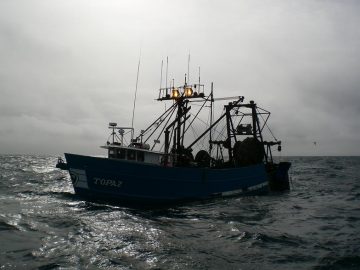 Something remarkable happened in my hometown of Kodiak recently. Roughly 1,000 people turned out to celebrate our groundfish trawl fishery. It was a family affair, with processing workers and their kids, fishing families, support businesses and local officials all participating in the parade and the barbecue picnic that followed. More than 2,000 meals were served and $17,000 was raised for the local Brother Francis Shelter. For me this was very special. My brother and I were some of the pioneers of the trawl fishery here in Kodiak. We started from scratch when the United States claimed a 200-mile zone. I remember the foreign fleets off our shores, and once they were replaced by U.S. vessels like ours,,, Read the rest here 11:06
Something remarkable happened in my hometown of Kodiak recently. Roughly 1,000 people turned out to celebrate our groundfish trawl fishery. It was a family affair, with processing workers and their kids, fishing families, support businesses and local officials all participating in the parade and the barbecue picnic that followed. More than 2,000 meals were served and $17,000 was raised for the local Brother Francis Shelter. For me this was very special. My brother and I were some of the pioneers of the trawl fishery here in Kodiak. We started from scratch when the United States claimed a 200-mile zone. I remember the foreign fleets off our shores, and once they were replaced by U.S. vessels like ours,,, Read the rest here 11:06
Cowichan News Leader Opinion – Seeing both sides of a local fisheries blockade
![]() The case for Government officials have ignored or run roughshod over the rights of local Natives for as long as there has been a British Columbia.,,read more,, The case against Historical issues are certainly relevant, but ignoring today’s reality would be foolish. Read more here 18:18
The case for Government officials have ignored or run roughshod over the rights of local Natives for as long as there has been a British Columbia.,,read more,, The case against Historical issues are certainly relevant, but ignoring today’s reality would be foolish. Read more here 18:18
Opinion: Some students learn from mistakes – Jack Emberly, retired teacher, local author and environmentalist.
Maple Ridge News – In the 1960s, the DFO paid $15 for harbor seal “snouts,” proof an enemy of Pacific salmon had been killed. Bounty hunters – commercial and recreational fishermen eager to help the cause – shot thousands of animals. Many seals sank before they could give up their noses. Dr. Lance Barrett-Lennard, biologist Vancouver Aquarium, recalls this culling campaign as an example of government tinkering with a perfectly self-regulating bio-system. alrighty then ,,,,,,,,,continued






